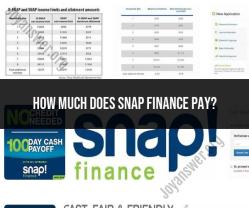Where to invest your cash?
Deciding where to invest your surplus funds depends on your financial goals, risk tolerance, and time horizon. Here are some options for strategic cash allocation:
Emergency Savings Account: Before considering other investments, it's essential to have an emergency savings account with enough funds to cover at least three to six months' worth of living expenses. This account should be in a highly liquid and easily accessible savings or money market account.
Pay Down High-Interest Debt: If you have high-interest debt, such as credit card balances, it's often a good idea to pay down that debt first. The interest rates on credit cards are typically much higher than what you can earn through most investments.
Retirement Accounts: Contributing to retirement accounts like a 401(k) or an Individual Retirement Account (IRA) can provide tax benefits and help you build wealth for the long term. These accounts often offer a variety of investment options, including stocks, bonds, and mutual funds.
Taxable Investment Accounts: If you've maxed out your retirement contributions or have surplus funds beyond your retirement savings goals, consider opening a taxable brokerage account. This provides flexibility in choosing investments like individual stocks, bonds, exchange-traded funds (ETFs), and mutual funds.
Certificates of Deposit (CDs): CDs are low-risk, time-deposit accounts offered by banks with fixed interest rates and maturity dates. They can be a safe place to park your money for a specific period, usually ranging from a few months to several years.
Treasury Securities: U.S. Treasury bonds, notes, and bills are considered extremely safe investments. They are backed by the U.S. government and offer varying maturities and interest rates. Treasury bonds can be purchased directly from the U.S. Department of the Treasury or through a brokerage.
Municipal Bonds: Municipal bonds, or "munis," are issued by state and local governments. They can provide tax advantages for investors in higher tax brackets, as the interest income is often tax-free at the federal level.
Real Estate: Real estate can be a long-term investment option. You can invest directly in properties or consider Real Estate Investment Trusts (REITs), which provide exposure to real estate markets and offer regular income.
Diversified Investment Funds: Consider mutual funds or ETFs that offer diversification across various asset classes, such as stocks, bonds, and real estate. These funds are managed by professionals and can provide a balanced approach to investing.
Robo-Advisors: Robo-advisors are automated investment platforms that create and manage a diversified portfolio based on your risk tolerance and financial goals. They are suitable for hands-off investors.
Educational Accounts: If you have children or grandchildren, consider saving for their education with accounts like a 529 plan or a Coverdell Education Savings Account (ESA).
High-Yield Savings Accounts: Some online banks offer high-yield savings accounts that can provide better interest rates than traditional savings accounts. These can be good places for short-term savings goals.
Peer-to-Peer Lending: Platforms like LendingClub and Prosper allow you to lend money to individuals or small businesses in exchange for potential interest income.
Before making any investment decisions, it's crucial to assess your financial situation, risk tolerance, and investment objectives. It's often advisable to consult with a financial advisor who can provide personalized guidance based on your specific circumstances. Additionally, diversifying your investments across different asset classes can help manage risk in your portfolio.











